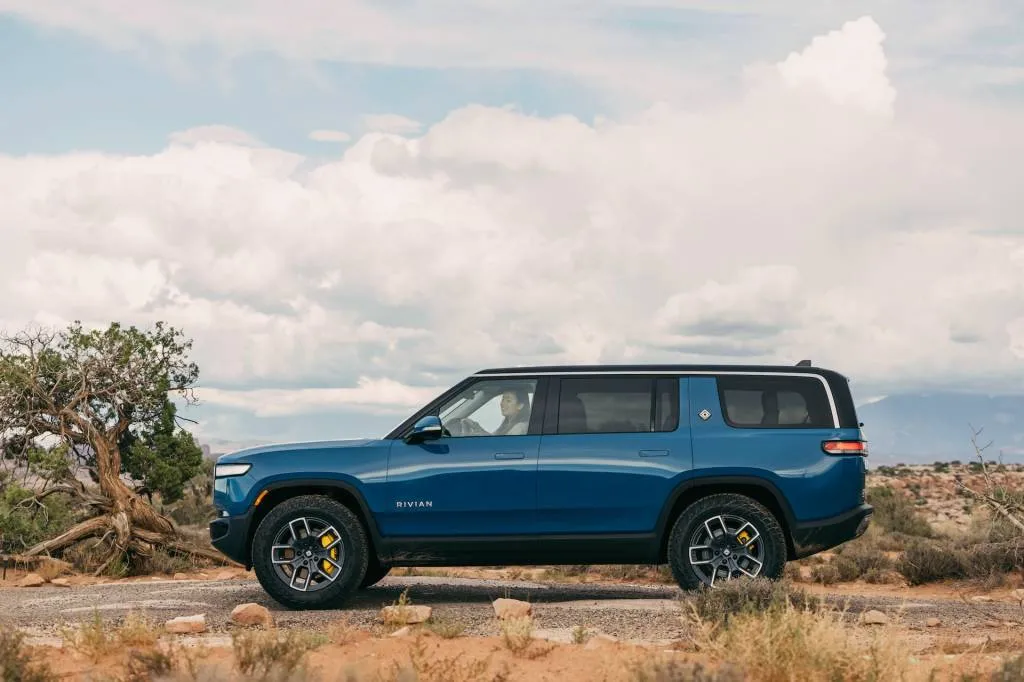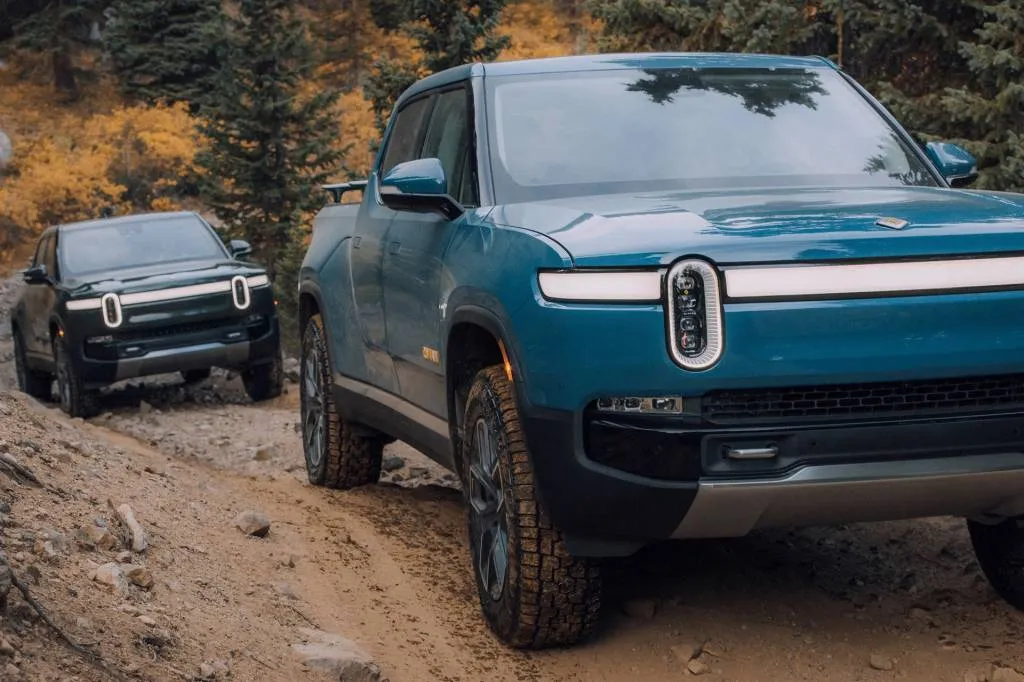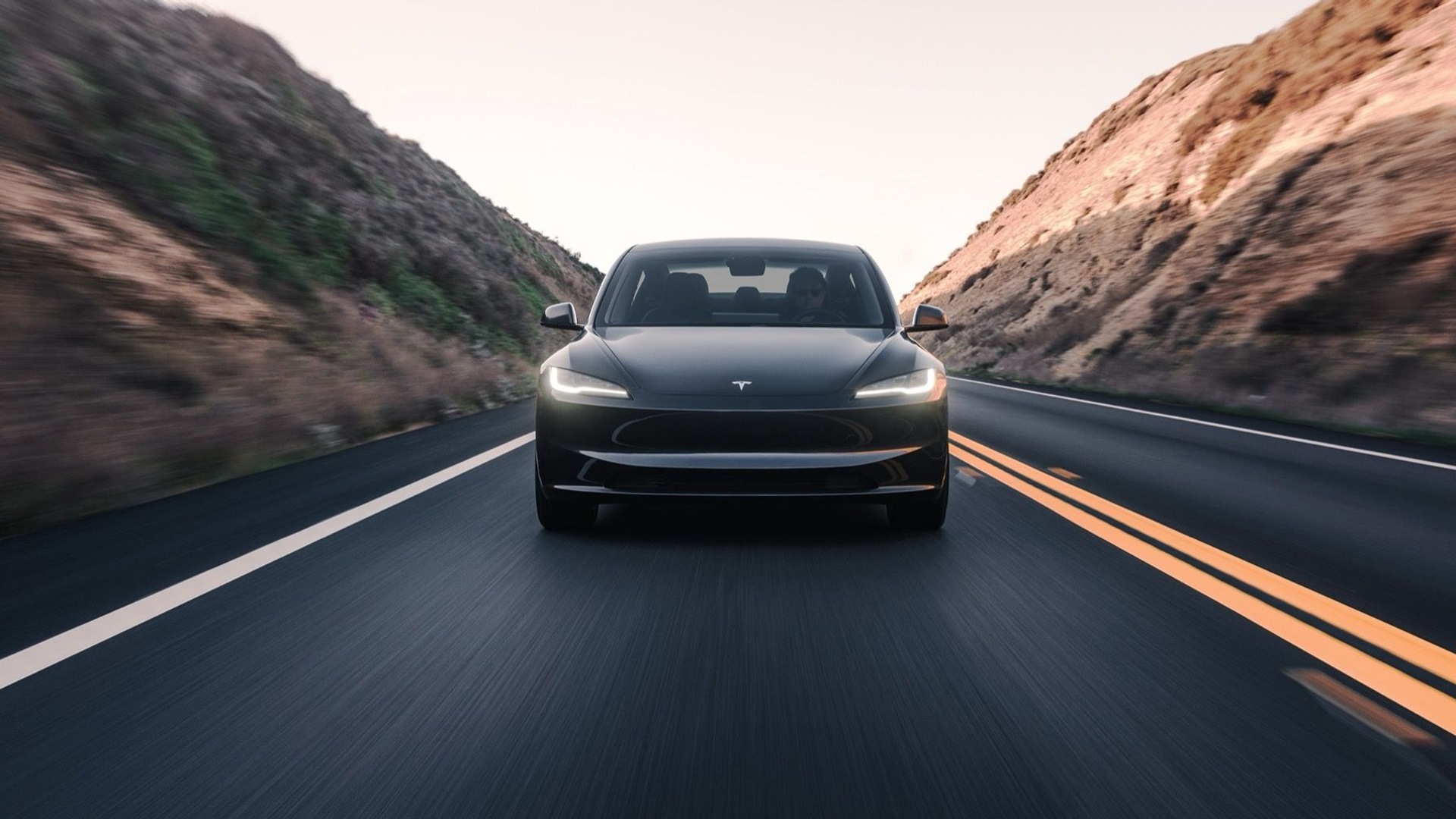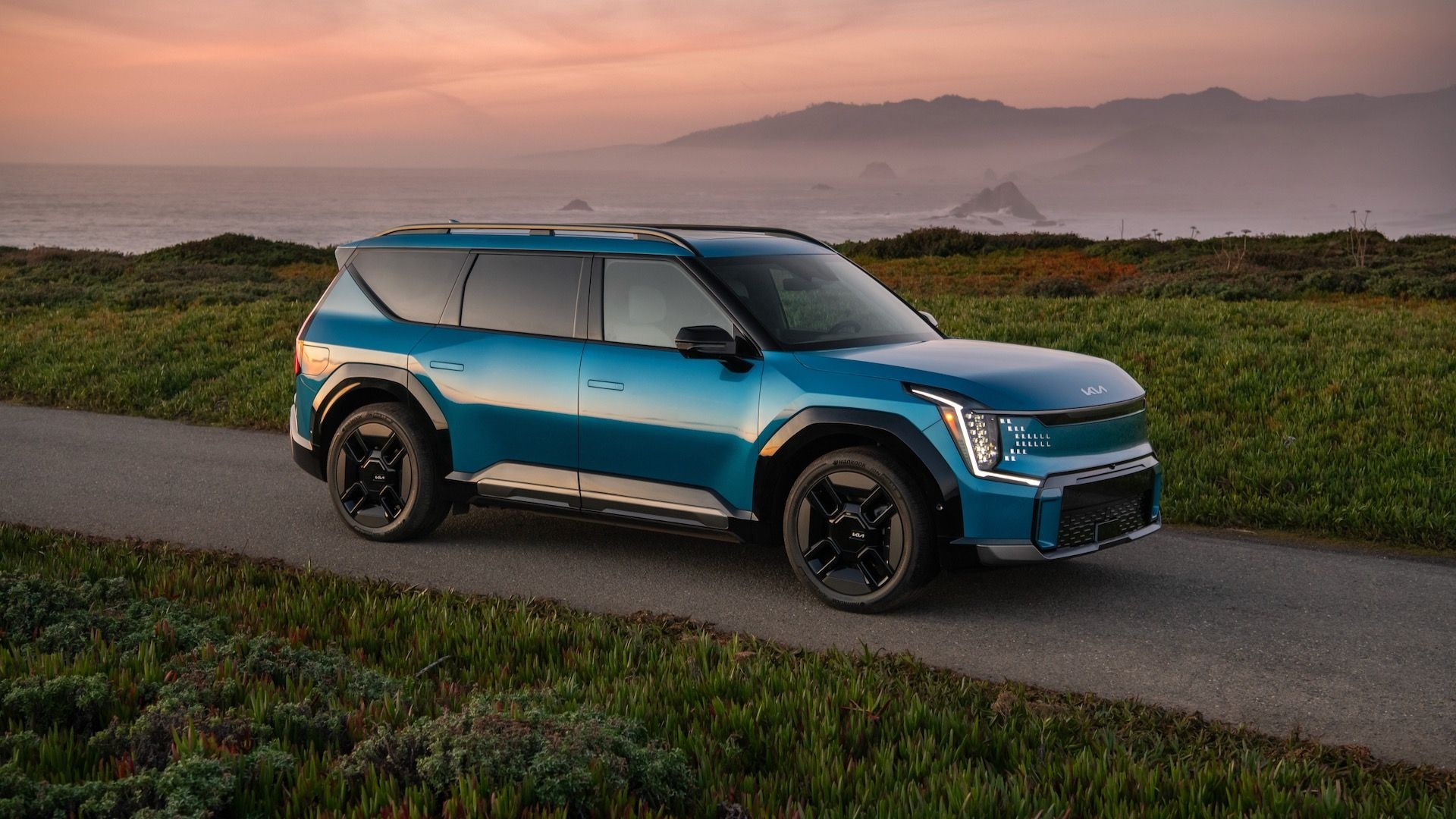In addition to being less expensive than the current R1T pickup truck and R1S SUV, Rivian believes its upcoming R2 EV will have a smaller carbon footprint as well.
And looking beyond the initial R2, Rivian intends to keep cutting the footprint of its vehicles. As noticed by The Verge, the company said in its first environmental impact report that its goal is to launch EVs "with half the lifecycle carbon footprint" of its 2022 R1 models by 2030.

2024 Rivian R1S
Rivian aims to accomplish that in part through increased use of recycled materials for manufacturing new vehicles. The company set targets of 70% recycled content in steel and aluminum parts by 2030, as well as 40% recycled and bio-based content in polymer materials by that date.
Rivian also plans to use 100% renewable energy to power its facilities by 2030, and plans to "support" the creation of 2 gigawatts of renewable energy projects to help decarbonize its charging network.

2024 Rivian R1T
Rivian's R2 will be revealed later this year and is expected to be priced in the $40,000-$60,000 range—appreciably lower than the R1 models. But production isn't scheduled to start until 2026. By that time, Rivian should have a second factory online in Georgia, in addition to its current Illinois plant. It's unclear what comes next—although Rivian has long hinted that a rally-flavored off-road-capable crossover could follow those other models.
While Rivian's impact report emphasizes various ways in which gains may be made in manufacturing and sourcing, today's electric pickups already emit less carbon dioxide than the average gasoline truck, anywhere in the U.S., according to a 2022 report from the Union of Concerned Scientists (UCS). That's despite electric pickups' relative inefficiency compared to other EVs.












